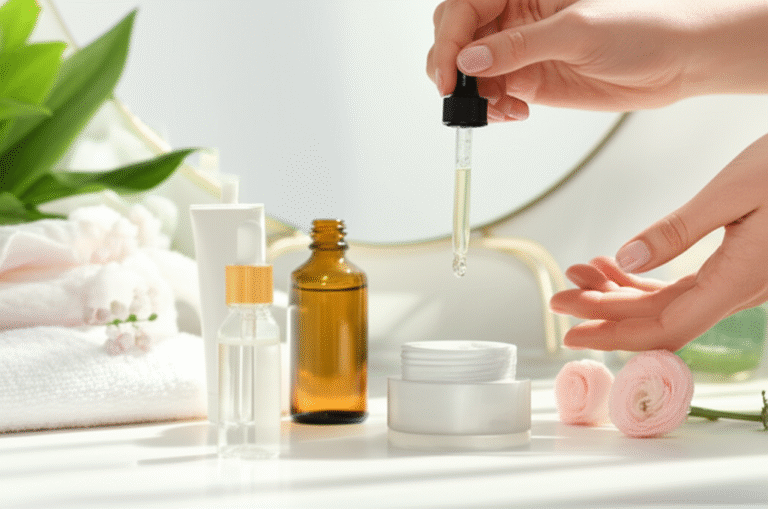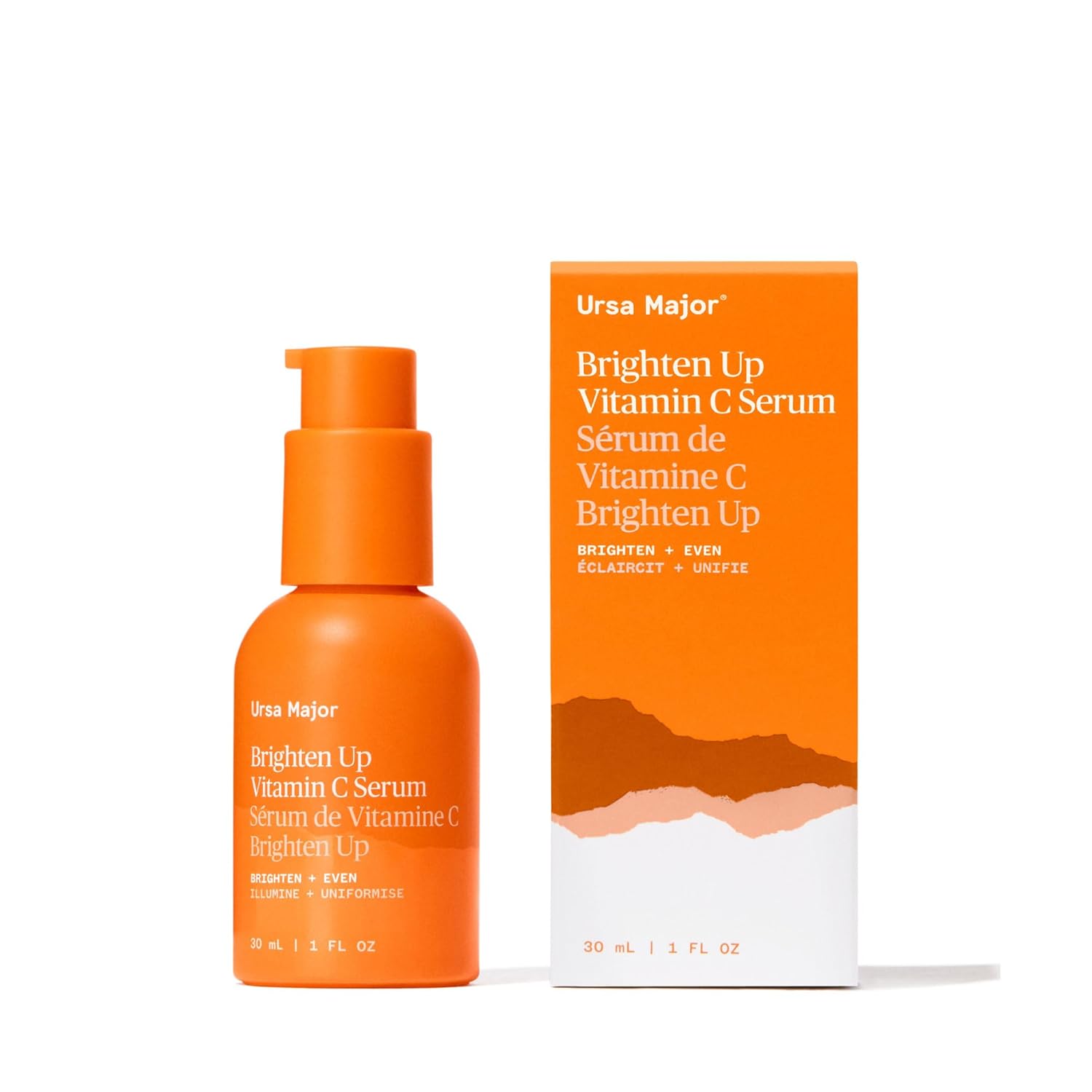Polysorbate 20 in skin care is a gentle emulsifier that helps mix oil and water, making skincare products more effective and smoother to apply. It enhances product texture and helps active ingredients spread evenly, leading to better absorption and a more enjoyable skincare experience.
Are you ever confused by the ingredient list on your favorite moisturizer or cleanser? Many of us are! Skincare can feel like a secret code, with long scientific names that make us wonder what’s really in our products. If you’ve ever seen “Polysorbate 20” and felt a little lost, you’re not alone. Many beginners worry about certain ingredients, but understanding them can make choosing products so much easier. Today, we’re going to break down Polysorbate 20 in a super simple way. We’ll explore its essential benefits and why it’s a common and actually very helpful ingredient in your skincare routine. Get ready to feel more confident about your skincare choices!
What Exactly is Polysorbate 20?

Think of Polysorbate 20 as a skincare superhero, but a very gentle one! In simple terms, it’s an ingredient that helps to mix things that normally don’t want to mix, like oil and water. This is super important in skincare because many fantastic ingredients are oil-based, while our skin is mostly water-based. Polysorbate 20, often called a non-ionic surfactant, acts as an emulsifier. This means it allows oil and water to blend together smoothly, creating stable and pleasant formulations for creams, lotions, cleansers, and serums.
It’s made from sorbitol, a sugar alcohol, and ethylene oxide, a substance derived from petroleum. The number “20” refers to the number of ethylene oxide units that have been added. This process creates a molecule that has both water-loving and oil-loving parts. This dual nature is what allows it to bridge the gap between oil and water, preventing them from separating in your product. Companies use it because it’s effective, gentle, and helps create the luxurious textures we all love in our skincare.
The Science Behind the Magic: How it Works
To understand why Polysorbate 20 is so useful, let’s look a little closer at how emulsifiers work. Imagine trying to mix salad dressing where the oil and vinegar (water-based) separate. An emulsifier is like the ingredient that keeps them together in a smooth, creamy mixture. Polysorbate 20 does exactly this for your skincare products.
Its molecular structure is key. It has a hydrophilic (water-loving) head and a lipophilic (oil-loving) tail. When you add Polysorbate 20 to a mixture of oil and water, the lipophilic tails attach to the oil droplets, and the hydrophilic heads face outwards towards the water. This creates a barrier around the oil droplets, preventing them from clumping together and keeping them dispersed evenly throughout the water. Without emulsifiers like Polysorbate 20, your creams might split into separate layers of oil and water, which isn’t good for product stability or how it feels on your skin.
Furthermore, Polysorbate 20 also acts as a solubilizer. This means it can help dissolve certain ingredients that don’t usually dissolve in water, like fragrances or certain botanical extracts, allowing them to be incorporated into water-based formulas. This not only helps with the product’s stability but also ensures that beneficial ingredients are distributed evenly for maximum effectiveness.
The U.S. Food and Drug Administration (FDA) has approved it for use in food products as well, which speaks to its general safety profile when used in carefully formulated cosmetics. You can find more information on surfactants and their applications on resources like the Polymer Wiki, which explains their role in various industries, including personal care.
Essential Benefits of Polysorbate 20 in Skin Care
Polysorbate 20 is much more than just a binder. It offers several key benefits that enhance your skincare products and contribute to healthier-looking skin. Let’s dive into why it’s such a valuable ingredient:
- Improves Product Texture and Feel: One of the most noticeable benefits is how Polysorbate 20 contributes to a smooth, silky, and non-greasy feel. It helps create lighter lotions and creams that spread easily without leaving a heavy residue, making your daily application a pleasure.
- Enhances Ingredient Dispersion: By emulsifying oil and water, Polysorbate 20 ensures that all the beneficial ingredients in your skincare product – like vitamins, antioxidants, and moisturizers – are evenly distributed. This means you get the full benefit of each ingredient with every application.
- Boosts Product Stability: Skincare products need to remain consistent and effective over time. Polysorbate 20 helps prevent ingredients from separating, ensuring your product maintains its intended consistency and performance from the first use to the last.
- Aids in Cleansing: In cleansers, Polysorbate 20 helps lift dirt, oil, and makeup from the skin by enabling them to mix with water and be rinsed away easily. This makes cleansing more effective without stripping the skin of its natural moisture.
- Gentle on the Skin: Compared to some harsher surfactants, Polysorbate 20 is generally considered mild and less likely to cause irritation, making it suitable for a wide range of skin types, including those that might be sensitive.
- Helps Penetration of Actives: By improving the even distribution and consistency of a formula, Polysorbate 20 can indirectly help active ingredients penetrate the skin more effectively, leading to better results.
Polysorbate 20 vs. Other Emulsifiers
The world of skincare ingredients is vast, and you might encounter other emulsifiers besides Polysorbate 20. Understanding how they compare can help you appreciate why Polysorbate 20 is a popular choice, especially for sensitive or beginner-friendly formulations.
Different emulsifiers have varying strengths, sensitivities to pH changes, and compatibility with various ingredients. Polysorbate 20 is known for its excellent stability across a range of temperatures and pH levels. It also has a good safety profile and is rarely associated with stinging or irritation, making it a reliable ‘go-to’ for many formulators.
For example, someionic surfactants (like Sodium Lauryl Sulfate) create a rich lather but can be too stripping for dry or sensitive skin. Others, like certain fatty alcohols, provide excellent emollience but might feel heavier. Polysorbate 20 strikes a good balance. It offers effective emulsification and solubilization without being overly harsh or leaving a heavy residue, which is ideal for lightweight lotions, serums, and micellar waters.
Here’s a quick look at how Polysorbate 20 stacks up against a couple of other common emulsifiers:
| Emulsifier | Primary Function | Typical Feel | Best For | Potential Downsides |
|---|---|---|---|---|
| Polysorbate 20 | Emulsifier, Solubilizer | Light, non-greasy, silky | Lotions, serums, cleansers, micellar waters | Can be less effective with very oily formulations alone. |
| Glyceryl Stearate | Emulsifier, Emollient | Rich, creamy, moisturizing | Thicker creams, body butters | Can feel slightly heavier on the skin. |
| Cetearyl Alcohol | Emulsifier, Emollient, Thickener | Smooth, creamy, conditioning | Moisturizers, conditioners, thicker lotions | Can feel too heavy for very oily skin types. |
| Polysorbate 80 | Emulsifier, Solubilizer | Light to medium, smooth | Oily serums, perfumes, lotions | Can be slightly less stable than Polysorbate 20 in some formulations. |
As you can see, Polysorbate 20 is a versatile ingredient that contributes to a pleasant user experience across many types of products without the heaviness that some other emulsifiers might impart.
Where You’ll Find Polysorbate 20
Polysorbate 20 is a workhorse ingredient, so you’ll discover it in a wide array of skincare and beauty products across different categories. Its ability to create stable, pleasant formulations makes it ideal for many applications.
You’ll commonly find it in:
- Facial Cleansers: Whether it’s a gentle foaming cleanser or a no-rinse micellar water, Polysorbate 20 helps lift impurities effectively while ensuring the product rinses cleanly or wipes away easily.
- Moisturizers and Lotions: In these products, it helps create that smooth, creamy texture that spreads evenly and sinks into the skin without feeling greasy. It ensures all the moisturizing agents are well-distributed for consistent hydration.
- Serums: Lightweight serums that contain a mix of water-soluble and oil-soluble ingredients often rely on Polysorbate 20 to maintain their efficacy and texture.
- Makeup Removers: Its ability to help dissolve oils makes it a key ingredient in many effective makeup removers, breaking down stubborn waterproof makeup.
- Body Washes and Shower Gels: Similar to facial cleansers, it aids in lathering and ensuring that conditioning agents are distributed throughout the product.
- Toners and Mists: In lighter fluid products, it can help solubilize beneficial extracts or essential oils, ensuring they are suspended evenly.
You can often spot it on product ingredient lists. Look for “Polysorbate 20” usually listed somewhere in the middle to the end of the ingredient list, depending on its concentration. The higher up an ingredient is on the list, the more of it is in the product.
Is Polysorbate 20 Safe for Your Skin?
This is a crucial question for anyone starting out in skincare! When it comes to safety, Polysorbate 20 is generally considered safe and suitable for most skin types, including sensitive and acne-prone skin, when used in cosmetic formulations. Regulatory bodies like the Cosmetic Ingredient Review (CIR) Expert Panel have reviewed its safety extensively. They have concluded that Polysorbate 20 is safe as a cosmetic ingredient in the present practices of use and concentration, based on available scientific evidence and its extensive history of use.
The concerns often arise from misunderstandings about its chemical nature or potential impurities. However, the Polysorbate 20 used in cosmetics is highly purified. While ethylene oxide, a precursor in its creation, can be a concern, the final Polysorbate 20 molecule is very different. The process used to create cosmetic-grade polysorbates ensures that any residual ethylene oxide or 1,4-dioxane (a potential byproduct) is at extremely low, safe levels, often less than parts per million, well below any level that would cause harm. Reputable sources such as the CIR Expert Panel report provide detailed safety assessments for ingredients like Polysorbate 20.
Like any ingredient, there’s always a small possibility of an individual sensitivity or allergic reaction. However, these are rare for Polysorbate 20. Patch testing a new product on a small area of your skin (like behind the ear or on your inner wrist) is always a good practice if you have very sensitive skin or are concerned about a new product.
It’s important to remember that ingredient safety is assessed based on the final product formulation and typical usage. A well-formulated product will contain Polysorbate 20 at a concentration that is both effective and safe. Its mild nature makes it a preferred choice for formulators aiming for gentle yet effective products.
How to Incorporate Products with Polysorbate 20 into Your Routine
Adding products with Polysorbate 20 is as simple as choosing them for your daily regimen! Because it plays a role in making products feel good and work well, many of your favorite items likely already contain it.
Here’s how you can strategically use products featuring Polysorbate 20:
- Start with a Gentle Cleanser: Use a facial cleanser that lists Polysorbate 20. This will effectively remove impurities accumulated throughout the day or night without making your skin feel tight or dry. Gentle cleansing is the first step to healthy skin.
- Hydrate with a Lightweight Moisturizer: Look for lotions or creams with Polysorbate 20 for a smooth, non-greasy application. This ensures your skin gets an even layer of hydration and beneficial ingredients.
- Incorporate a Gentle Makeup Remover: For days when you wear makeup, a makeup remover or micellar water containing Polysorbate 20 can help break down makeup efficiently, including stubborn mascara or foundation, making removal quick and easy.
- Don’t Forget Sunscreen: Many sunscreens, especially chemical ones, contain emulsifiers like Polysorbate 20 to ensure the UV filters are evenly dispersed. This guarantees you get broad-spectrum protection across your entire face.
- Layer Serums Wisely: If you use serums, especially those that feel lightweight and absorb quickly, they likely benefit from Polysorbate 20 to keep their active ingredients stable and well-distributed.
The key is to look for it in products where you want a smooth, even application and good performance. Since it’s generally mild, it’s a safe addition to routines for almost all skin types, from oily and acne-prone to dry and mature. Always remember to apply products in order from thinnest to thickest – cleansers, then toners, serums, eye creams, moisturizers, and finally sunscreen. Products with Polysorbate 20 fit perfectly into this layering system thanks to their texture-enhancing properties.
Frequently Asked Questions About Polysorbate 20 in Skincare
Here are some common questions beginners have about Polysorbate 20:
Q1: Can Polysorbate 20 cause acne or breakouts?
A1: Generally, no. Polysorbate 20 is not considered comedogenic (pore-clogging). Its purpose is to improve product texture and ingredient dispersion, not to block pores. In fact, by helping to create lighter formulas and improve cleansing, it can help manage skin concerns, including those related to oiliness and breakouts, when part of a well-balanced routine.
Q2: Is Polysorbate 20 natural or synthetic?
A2: Polysorbate 20 is derived from both natural and synthetic sources. It is made from sorbitol, which is derived from vegetable sources, but the process involves linking it with ethylene oxide, a chemical compound. Therefore, it’s typically classified as a synthetic or nature-derived ingredient, depending on the strictness of the definition used. It fits into the category of ingredients valued for their functional benefits in creating effective formulas.
Q3: How does Polysorbate 20 differ from Polysorbate 80?
A3: Both are polysorbates and act as emulsifiers and solubilizers, but they differ in their lipophilic (oil-loving) portion. Polysorbate 20 has a shorter chain of ethylene oxide units and is generally lighter and less viscous. Polysorbate 80 has a longer chain and is often used in products that require a bit more emulsifying power or a creamier feel. Both are widely used and considered safe, with their choice depending on the specific formulation needs.
Q4: Can people with sensitive skin use products with Polysorbate 20?
A4: Yes, Polysorbate 20 is often recommended for sensitive skin types because it is considered a very mild surfactant. Many gentle cleansers and moisturizers designed for sensitive skin utilize Polysorbate 20 to achieve their desired texture and efficacy without causing irritation. However, as with any ingredient, individual reactions can occur, so a patch test is always a good idea if you are particularly concerned.
Q5: What if I see “ethoxylated ingredients” on a label? Is that related to Polysorbate 20?
A5: Yes, Polysorbate 20 is an example of an ethoxylated ingredient. Ethoxylation is the chemical process used to create it. This process adds ethylene oxide units to make it an effective emulsifier. While the term “ethoxylation” might sound concerning, it’s important to remember that the final ingredient, like Polysorbate 20, is purified and considered safe for cosmetic use, with any potential byproducts present at trace, safe levels.
Q6: Are there ‘natural’ alternatives to Polysorbate 20?</



